
This article is more than
1 year old
Julian Assange has stepped foot on Australian soil, bringing to an abrupt end a bitter and protracted legal saga lasting more than a decade that centred on the release of hundreds of thousands of classified and unfiltered US state department documents.
Touching down at Canberra airport on Wednesday evening at 7.45pm local time, Mr Assange, who travelled to his home country via a crowd-funded private jet marked VJT199, was greeted by a throng of waiting media and a small group of supporters.Pressed up against the fence, hundreds watched on as Mr Assange’s plane taxied across the runway.
Australian Border Force officials entered the plane to greet the WikiLeaks founder, ensuring he cleared customers before stepping foot on Australian soil and ending his journey home.
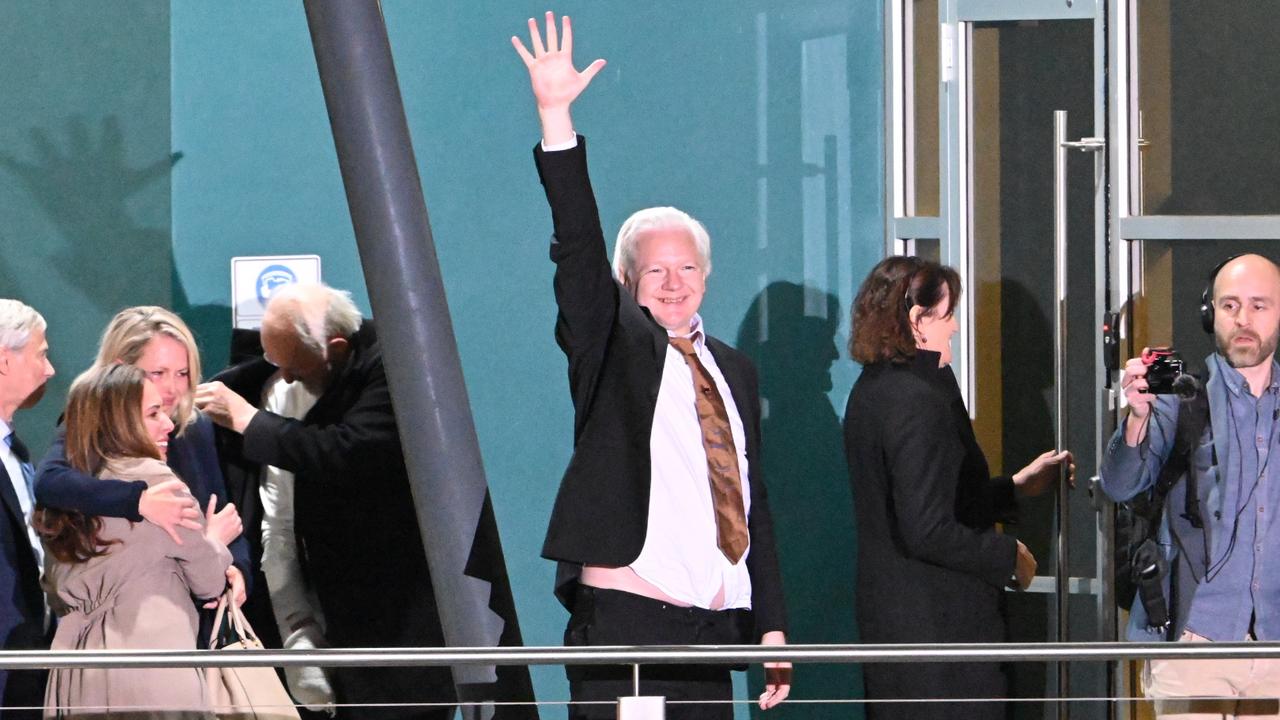
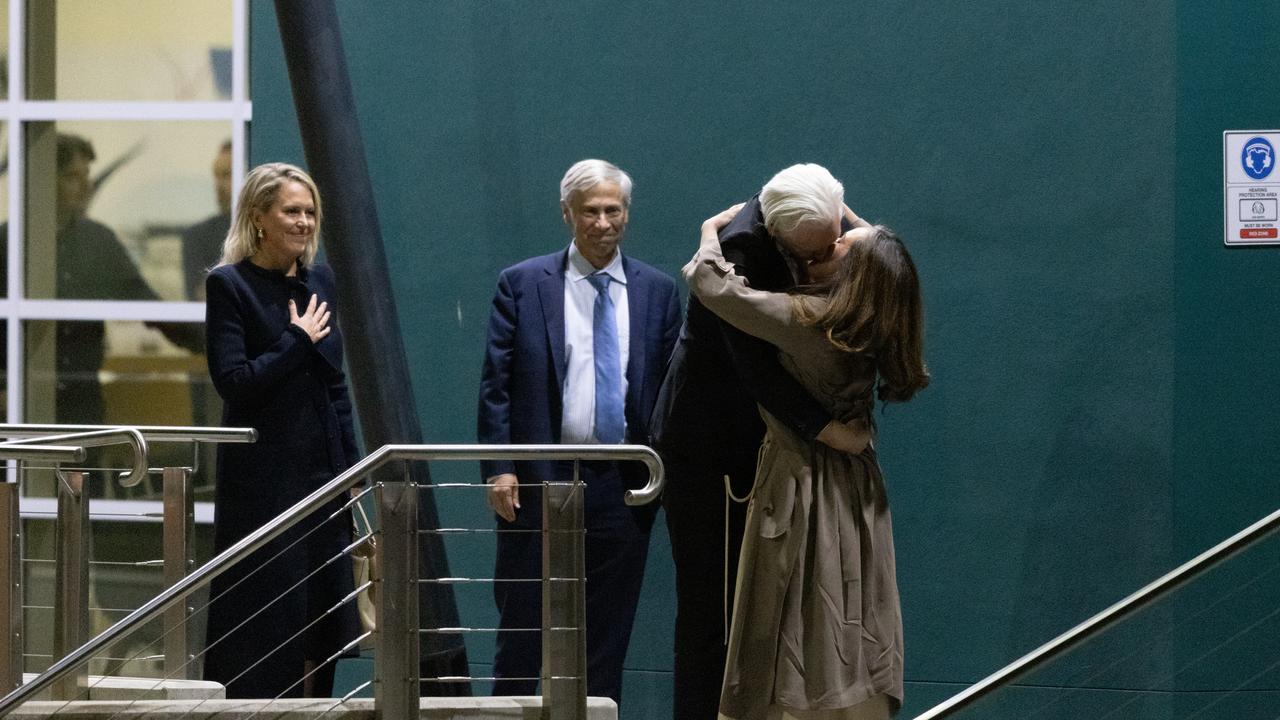
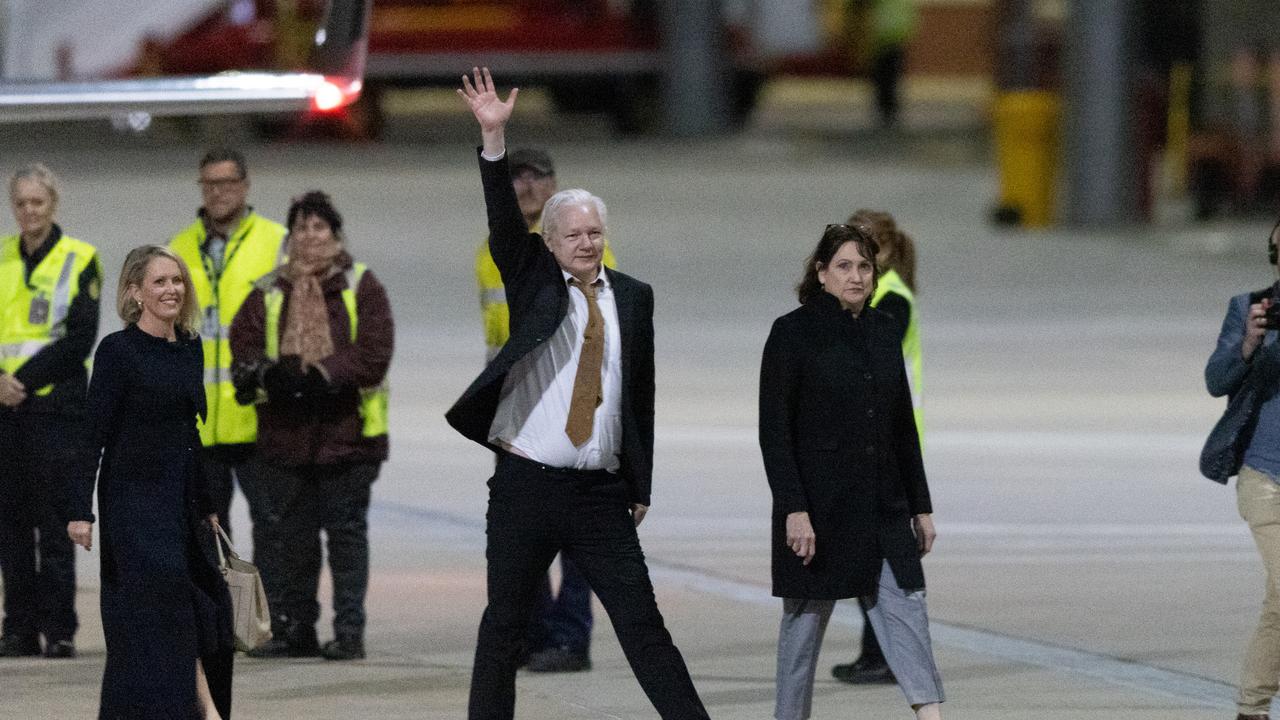
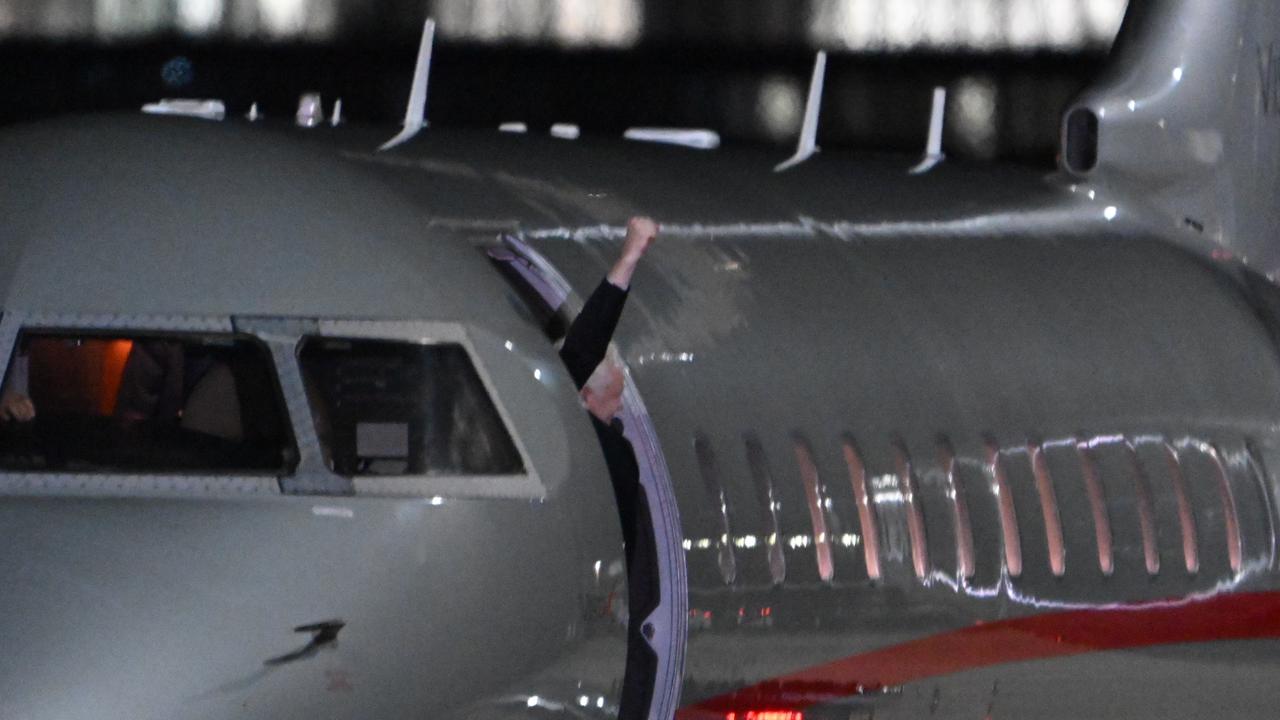
Stepping foot onto Australian soil, Mr Assange raised his fist to a large crowd who cheered him on, before he made the short walk across the tarmac to cheers from his supporters.
Mr Assange gave a triumpant wave, before embracing his wife, Stella Assange, who has relentlessly campaigned for his release.
Ms Assange shared a one-word tweet to X to celebrate her husband’s return.
“Home,” she wrote, accompanying a photo of the pair embracing.
Mr Assange then greeted other family members before again turning to the crowd and waving with cheers ringing out across the runway on a chilly Canberra evening.
He then embraced his father before giving another wave to the crowd.
Home. pic.twitter.com/OZAcXloxiP
— Stella Assange #FreeAssangeNOW (@Stella_Assange) June 26, 2024
It is the first time Mr Assange has been in Australia in 15 years.
About 40 minutes after landing, Mr Assange departed the Canberra Airport precinct.
Driven in a black Mercedes Sprinter and accompanied by a police escort, he waved from the front passenger seat while his wife and father were seated in the rear of the vehicle.
Moments earlier, US ambassador Kevin Rudd also departed the airport.
Ms Assange arrived at the East Hotel, where WikiLeaks is expected to speak to media.
She was emotional but told reporters she and her husband had a “private moment” when they reunited.
Mr Assange’s brother Gabriel Shipton was live on the ABC reacting to his brother’s arrival in Australia, wiping a tear and raising a fist when he saw his brother walk off the plane.
“I don’t think it would have happened without the support of the government. And I wholeheartedly, wholeheartedly agree with the Prime Minister, that standing up for Australians is so, so important,” Mr Shipton said.
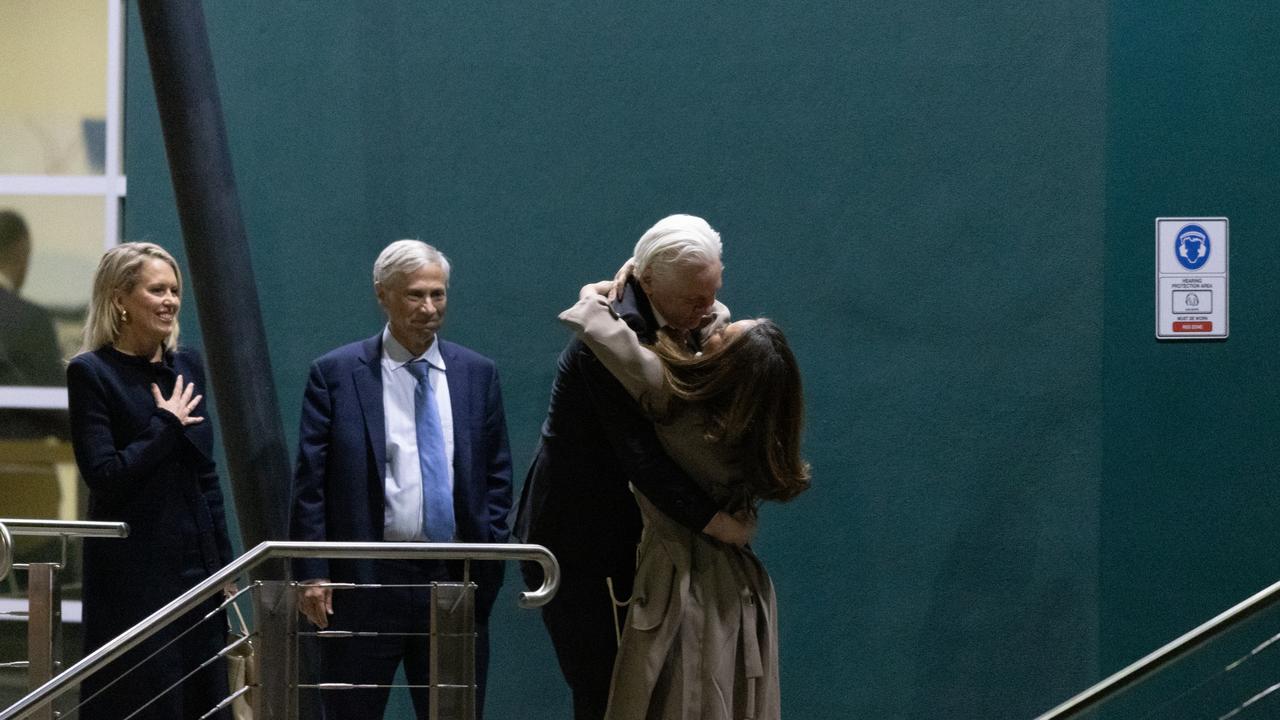
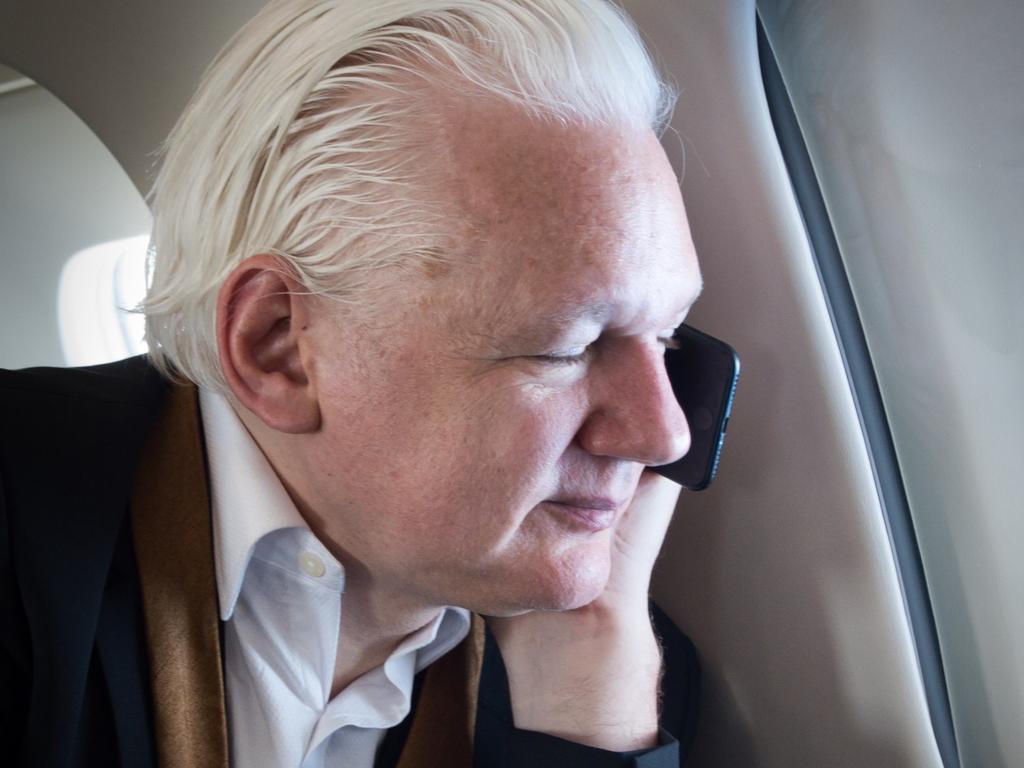
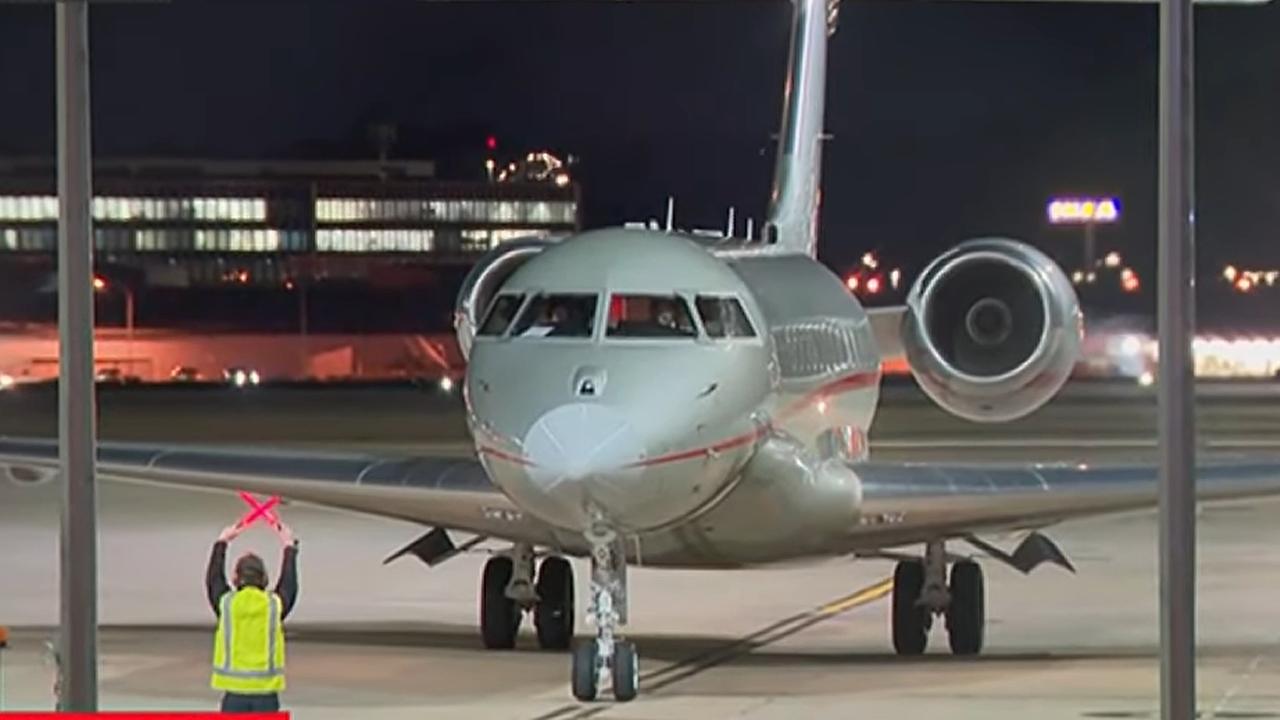
The WikiLeak’s founder on Monday entered a plea deal with US prosecutors after attempt to evade extradition to the United States for more than a decade over allegations
Having left the United Kingdom’s Belmarsh Prison on Monday after he was granted bail by the UK High Court, Mr Assange immediately boarded a private jet at Stansted Airport.
The 52-year-old then flew to Saipan, a self-governing US territory located in the western Pacific, about 2400km east of the Philippines, where he fronted a US Federal Court on Wednesday morning.
There he pleaded guilty to a single felony of conspiring to unlawfully obtain and disseminate classified information, a violation under the US Espionage Act, an agreement that spared him further time in imprisonment.
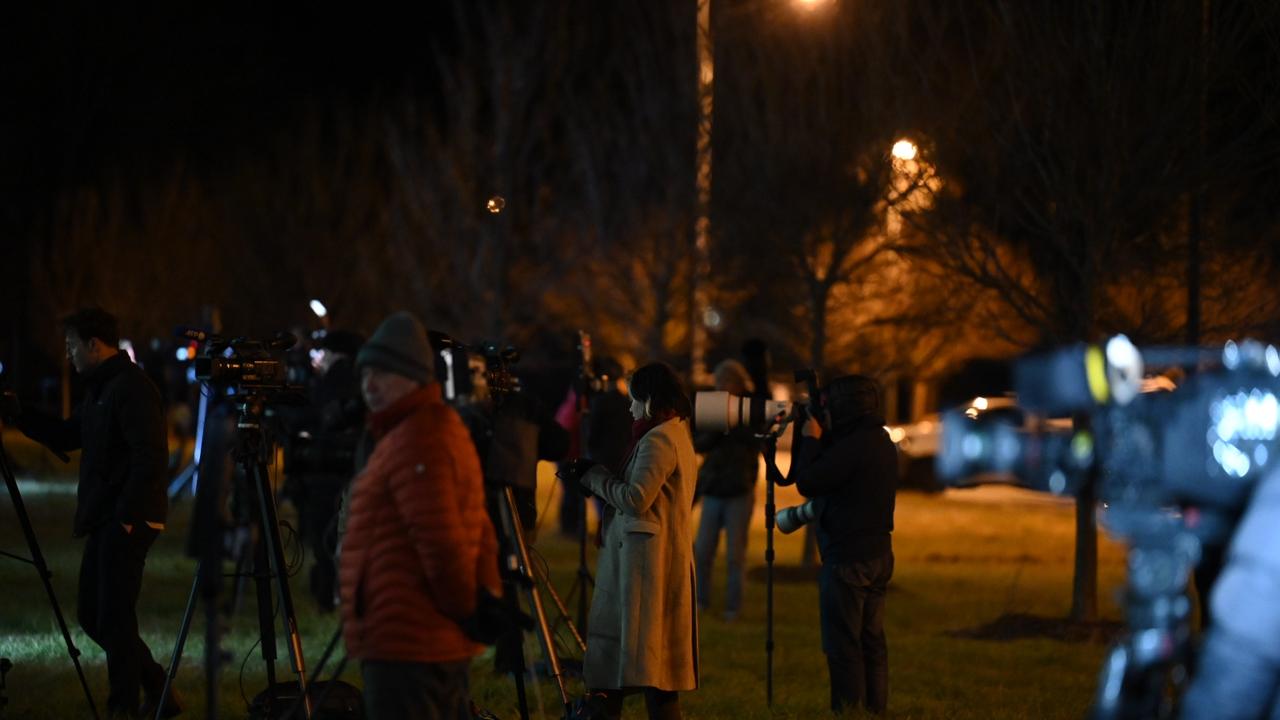
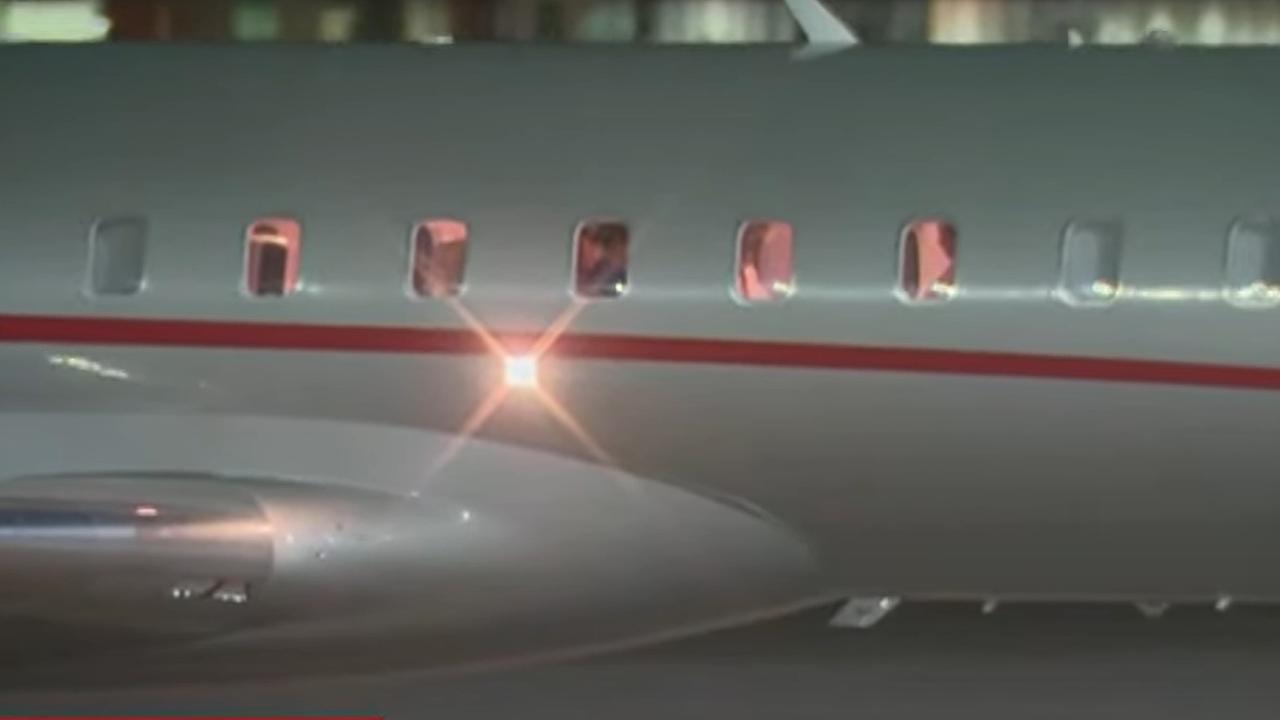
Speaking on Wednesday night, Prime Minister Anthony Albanese, whose government had engaged in significant diplomatic efforts to secure Mr Assange’s freedom, said he was the first person to speak with Mr Assange when his plane hit the tarmac.
“Earlier tonight, I was pleased to speak with Mr Assange, to welcome him home, to ask about his health and to have my first discussion with him,” he said.
“As I have said, both as Labor leader and as Prime Minister, there was nothing to be gained by the further incarceration of Mr Assange and we wanted him brought home. That has happened.
“We have got this done.”
The Prime Minister said while people might hold different views about Mr Assange’s actions, he would always “stand up” for Australian citizens.
“I believe in standing up for Australian citizens,” he said.
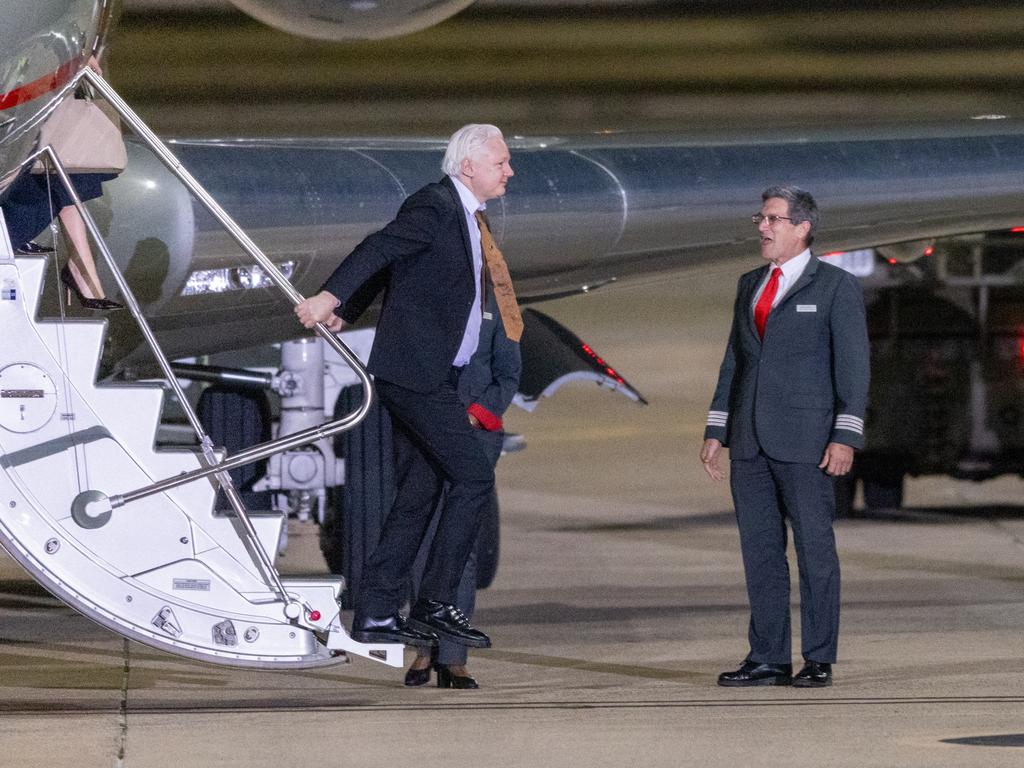
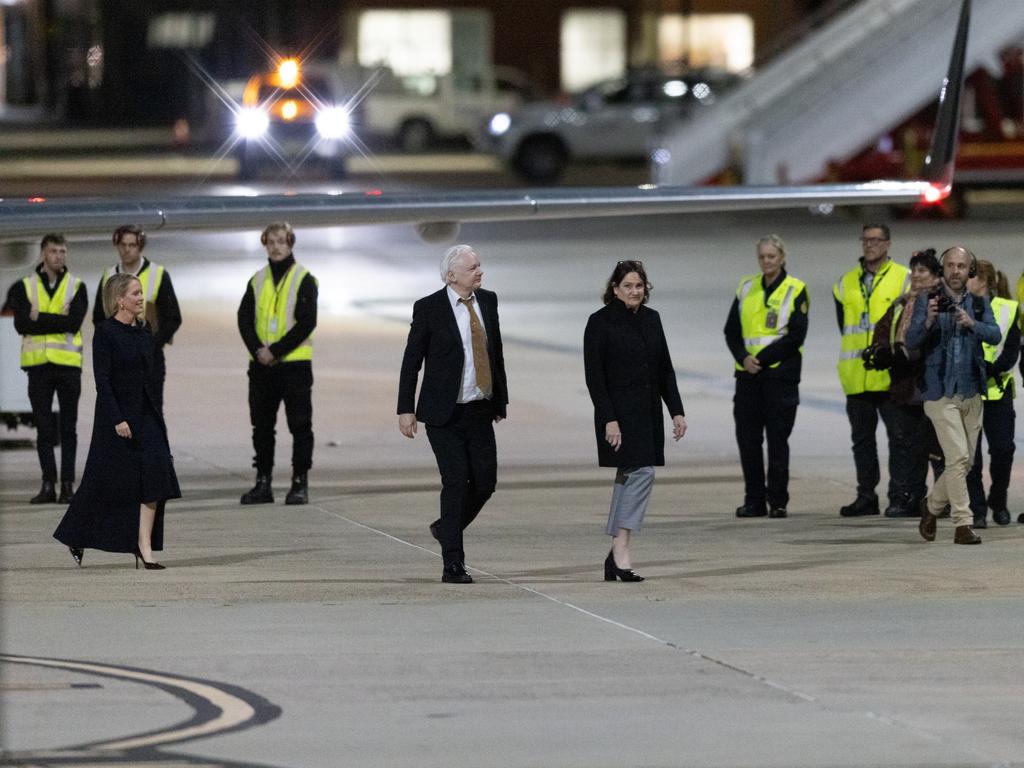
“The Australian government stands up for Australian citizens, that’s what we do.”
Mr Albanese said Mr Assange’s return to Australia was the result of “strategic, calibrated and patient” diplomatic work from a range of actors, including former Labor Prime Minister Kevin Rudd and High Commissioner to the UK Stephen Smith.
“One of the things that my government does is at times as well, we don’t shout, we’re not in a contest of machismo, what we do is we get things done,” he said.
The Prime Minister said Mr Assange had referred to Australia’s diplomatic corp as the “A Team”.
He said the saga would not damage relations with the United States, Australia’s most important ally.
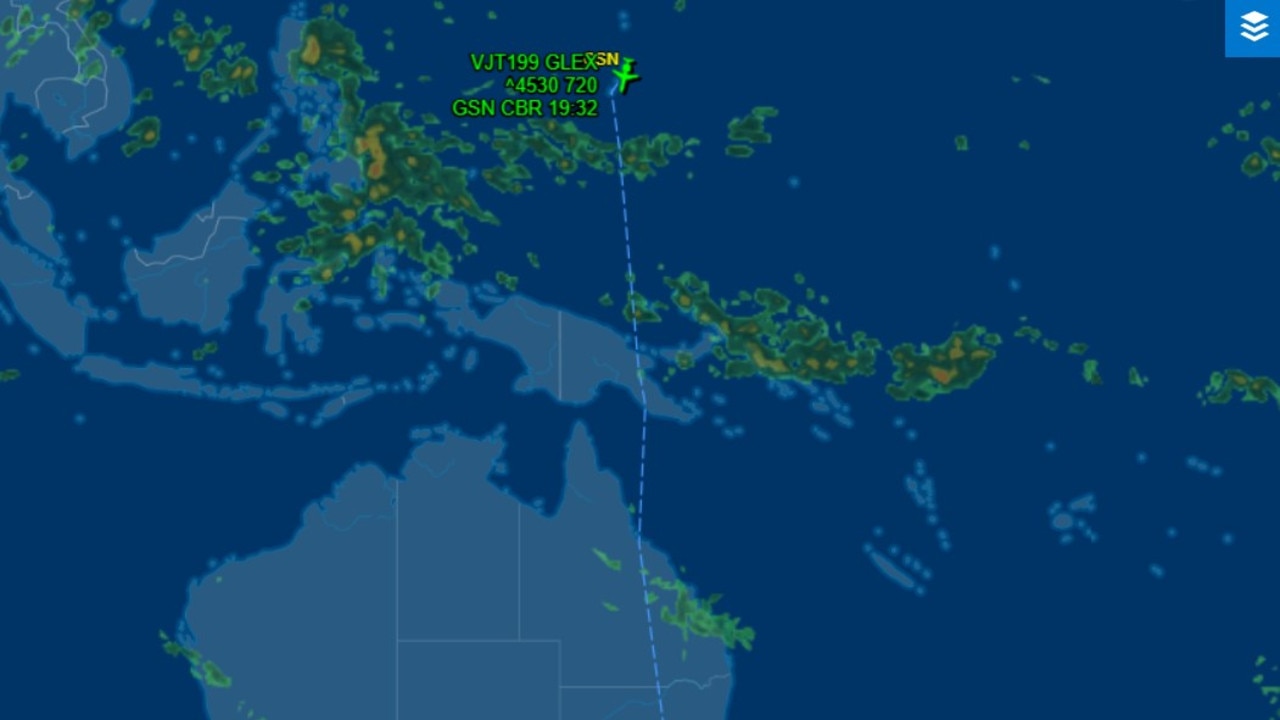
Mr Assange’s legal woes commenced in 2010 after WikiLeaks released thousands of classified US military documents and diplomatic cables which covered the United State’s actions in Iraq and Afghanistan in the early 2000s which were obtained by US Army analyst Chelsea Manning.
Collaborating with media outlets, Mr Assange shot to international prominence and was celebrated as an advocate of radical government transparency among proponents of press freedom who argued he acted to reveal military wrongdoing.
But DOJ prosecutors, who argued the actions risked the country’s national security, subsequently charged Mr Assange over the leaks, alleging he had violated the Espionage Act, accusing him of conspiring with Ms Manning by assisting her to break into a Defence Department computer.
The documents released included the un-redacted names of individuals who were placed at “grave and imminent risk”, including Iraqi informants, DOJ prosecutors claimed.
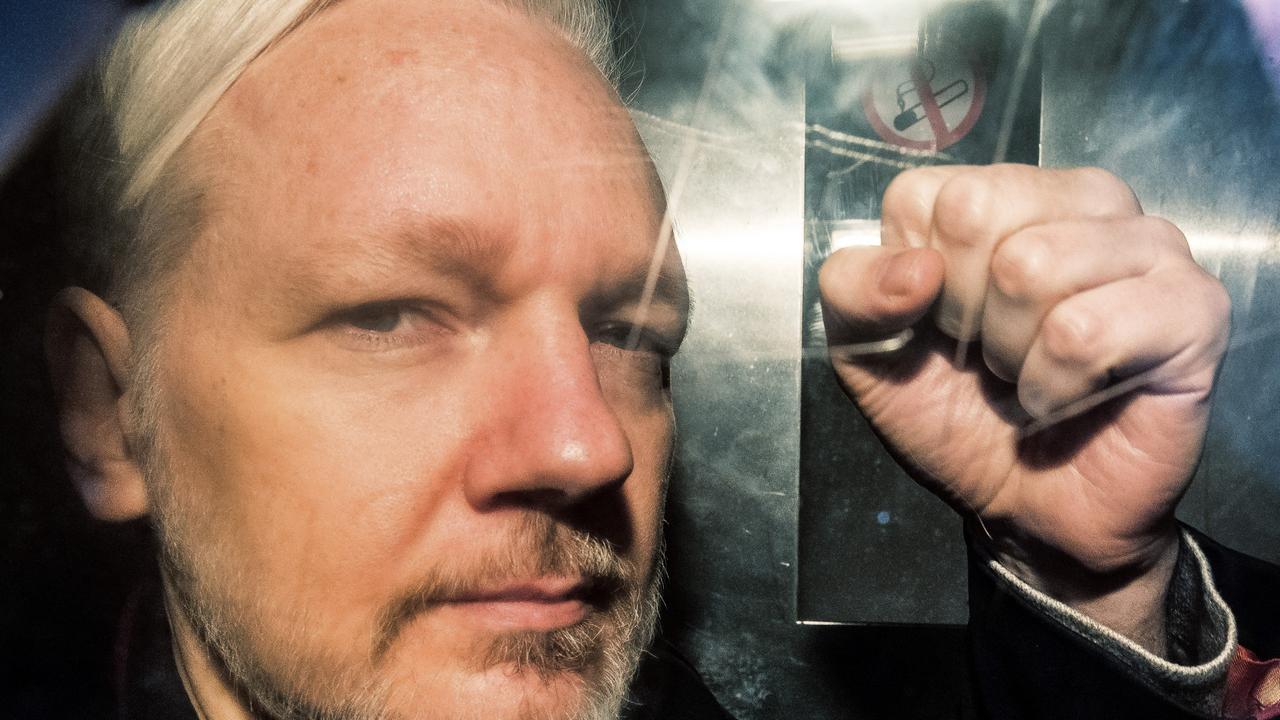
Lawyers for Mr Assange argued that he had merely distributed the classified documents rather than actively sought to obtain them, a protection afforded to journalists under the US’ First Amendment of free speech.
Mr Assange has spent more than a decade in an at times bizarre attempt to evade extradition to the United States where he faced trial.
Initially pursue in 2010 by Swedish authorities who sought his arrest on rape allegations that he denied and were later dropped, Mr Assange initially cooperated with British police regarding the matter but later accused the charges as a pretext for his extradition.After exhausting his legal options, Mr Assange sought refuge in the Ecuadorian embassy in London where he was unable to leave as he would face arrest by British police.
Earlier tonight I was pleased to speak with Julian Assange to welcome him home to his family in Australia. pic.twitter.com/r0Yl3iJtdb
— Anthony Albanese (@AlboMP) June 26, 2024
There he conceived his two children with wife Stella Assange, and hosted celebrities including Pamela Anderson and Lady Gaga.
But after seven years Mr Assange ultimately outstayed his welcome, angering embassy officials by skateboarding in the hallways, not cleaning up his cat’s mess, and refusing to pay for internet use and laundry facilities.
He was subsequently arrested by British police and charged with breaching his bail conditions, leaving him imprisoned in a high security prison for five years.
While a UK court initially ruled in favour of Mr Assange’s request not be extradited to the US, that ruling was successfully appealed by the DOJ.
Earlier this year, a London court granted Mr Assange a right to appeal the extradition order, further extending the long running legal fight.